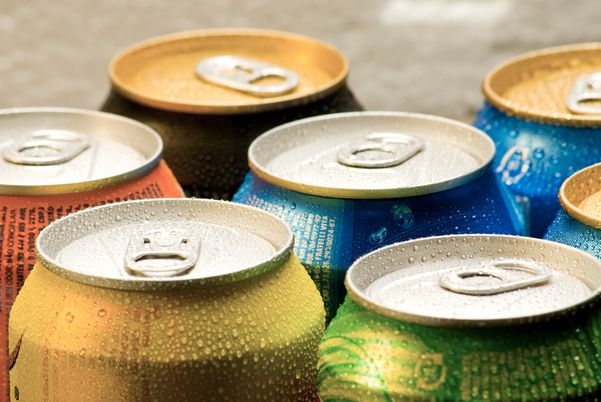There are countless stories of companies that compounded shareholder value at a high rate over such a long period of time that small investments made early investors filthy rich. The most prominent example is that of Warren Buffett's Berkshire Hathaway (NYSE: BRK-A) (NYSE: BRK-B). Everyone has heard that $10,000 invested in Berkshire when Buffett took over would be worth over $90 million today. Which stocks will investors look back on in 50 years and marvel at how such a small investment in 2014 turned into a fortune in 2064?
The most important factor in answering this question is knowing what to look for. Berkshire returned 9,300 times over 49 years, or about 20% per year. You aren't looking for the stocks that will double in one year; the key is to find the ones that will return 20% per year for 50 years. You want the stocks that can compound capital at an above-average rate for decades. That's why Markel (MKL 0.33%) and Monster Beverage (MNST +0.14%) should be on every long-term investor's watchlist.

Source: Markel Corp.
The next Berkshire
The most obvious contender for the next stock that produces Berkshire-like returns is the one that looks most like an early Berkshire. The company must have a fantastic manager that can grow intrinsic value faster than the S&P 500 over a long period of time. It is also important that the manager is operating with relatively little capital, enabling him to invest in the nooks and crannies of the market with few restraints. There are a few promising "Baby Berkshires" out there, but Markel stands out as the best.
Markel is a holding company that owns a variety of insurance companies and other businesses. Under the guidance of Chief Investment Officer Tom Gayner, Markel's book value per share compounded at 15% per year for 20 years and grew its equity portfolio 12.6% per year over the last 10 years. Unlike most insurance operations, Markel invests the majority of its premiums in carefully selected equities. This, bolstered by a sub-100% combined ratio, allows Markel to grow book value per share at a high rate over many years.
Markel's profitable insurance underwriting and shrewd investments is uncannily similar to the early days of Berkshire Hathaway. What's more, Markel's market capitalization is just $9 billion -- 1/35th of Berkshire's valuation. The 52-year-old Gayner has plenty of time left to guide Markel through its growth phase and make shareholders rich.
If you have any doubts about the company's expectations, just look at Markel's "Twitter version" of its 2013 results printed in its annual letter to shareholders:
2013 a great year. Doubled insurance business with
Alterra acquisition. Rest of Markel grew by double digits.
Expect more over time.
If we really can expect more over time, then Markel is a phenomenal long-term investment.

Photo: Monster Beverage
The next Coca-Cola?
The next Berkshire is one thing, but finding the next Coca-Cola (KO +0.36%) would really juice an investor's returns. Granted, it will be impossible for any now-small company to match Coca-Cola's global distribution capabilities and diverse product portfolio. However, Monster Beverage may be able to mimic Coca-Cola's success in the soft drink channel in its own market: energy drinks.
Monster's astronomical growth -- net sales were 20 times higher in 2013 than in 2003 -- has made it the No. 2 player in the energy drink market, behind only Red Bull and with a sizable lead on the rest of the industry. The company's products are even causing problems for Coca-Cola, which has struggled to gain traction in the energy drink space. In fact, Coca-Cola has been rumored to consider acquiring Monster.
It is not hard to make a case for Monster's continued prosperity. In addition to the massive demand driving energy drink growth, Monster's capital-light business model enables it to expand quickly and profitably. The company acts as a caretaker of its brands and outsources manufacturing and distribution. By doing so, it can expand into new territories by signing new distribution agreements; the only capital required is that needed for advertising.
The similarities between Monster and Coca-Cola are most prevalent in the case for continued growth. Monster's future growth is a per capita consumption story, just like Coca-Cola's. Morningstar estimates that the average American consumes just 10 servings of Monster's products per year. Product innovation and consumers' growing dependence on caffeine could drive per capita consumption higher in the decades ahead.
The company also has a long runway for growth in overseas markets. Teenagers and young adults in international markets are as open to energy drinks as those in the U.S., yet Monster derives less than one-quarter of its revenue from outside the U.S. There is no reason French or Brazilian teenagers would drink fewer Monster drinks than American teenagers; in the decades ahead, international markets could provide the springboard that makes long-term shareholders rich.
Foolish takeaway
It is easy to get carried away with the high-flying momentum stocks of the day. The idea of owning a stock that could double or triple in the next couple of years is too hard to resist for many investors. However, those who buy companies that compound shareholder value at an above-average rate for decades are the ones who will retire rich. Berkshire Hathaway has proved to be an enormous success for investors who bought early and held on forever. Markel and Monster Beverage could be part of the next set of companies that make early shareholders rich.










